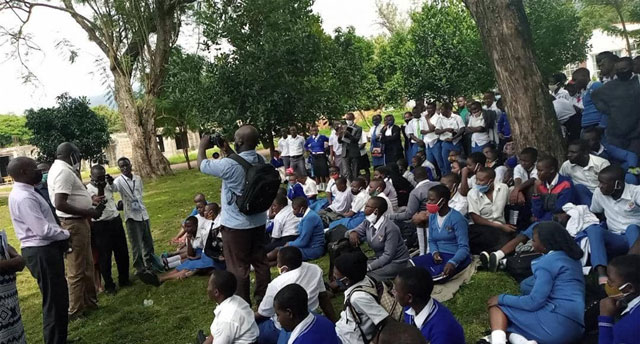By THE INDEPENDENT UG
Kampala, Uganda | THE INDEPENDENT | The World Bank has issued a warning that the ongoing underinvestment in human capital development significantly impacts the individual productivity of Ugandans, potentially hindering growth trends.
As per the 22nd Edition of the World Bank’s Uganda Economic Update, the economy is on the path to recovery from multiple shocks and a challenging global environment. Robust activity is observed due to strong performances in the industrial and services sectors.
Despite adverse weather affecting agricultural production and inflationary pressures arising from global commodity price hikes due to the Ukraine conflict, the sector has displayed strong growth, notes the Bank.
Growth has rebounded to a commendable 5%, with the Uganda Bureau of Statistics projecting an acceleration to 6% or more in the current financial year. However, the World Bank expresses concerns about the fragility of this growth, susceptible to risks such as potential spillover from the war in Sudan and recent global market events.
Experts highlight that Uganda is approaching a critical developmental stage where progress will increasingly depend on human capital—knowledge, skills, and health accumulated throughout individuals’ lives. The population is expected to grow by 60% in the next 20 years; however, insufficient public investment is directed towards addressing this demographic shift.
The World Bank estimates that with current levels of human capital investment, a child born in Uganda today will only reach 38% of their potential productivity with complete education and full health.
Keith Hansen, Country Director for Kenya, Rwanda, Somalia, and Uganda, emphasizes the necessity for substantial resources and elevated investments in social services to improve access and quality. He stresses the importance of equality in providing access to human capital development to address the inequality of opportunities and make future growth more inclusive.
Despite facing challenges, Uganda is acknowledged for being among the first countries to adopt universal primary education, leading in employer-led skills development, and being a global leader in generosity towards refugees and their human development.
Hansen pledges the World Bank’s support for Uganda’s efforts, urging increased, strategic, and immediate investments in the future productivity of its people. While Uganda’s 2023 growth is estimated at 5.2%, the East African region’s growth is expected to be 1.9%, lower than the earlier projection of 3.6%.
The report attributes the East African region’s subdued growth to the conflict in Sudan, reducing labor supply, and damaging the country’s industrial base. Sub-Saharan Africa’s economic activity is anticipated to grow by 2.5% in 2023, 0.7 percentage points below the June 2023 forecast, influenced by high inflation rates (although decreasing), tight global and domestic financial conditions, slow global growth, and increased conflict and violence within the region. Adverse weather conditions also pose challenges to economies struggling with high and rising debt levels, according to the report.
********
URN








Discussion about this post